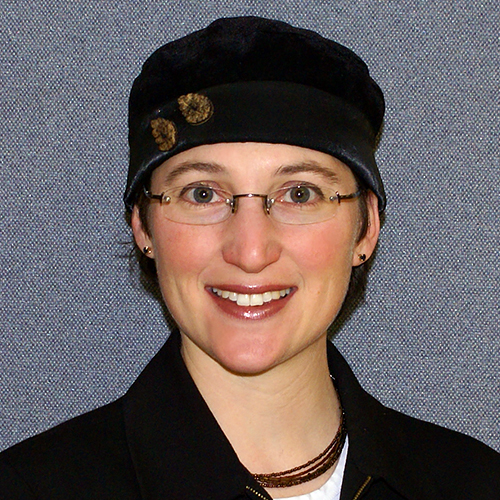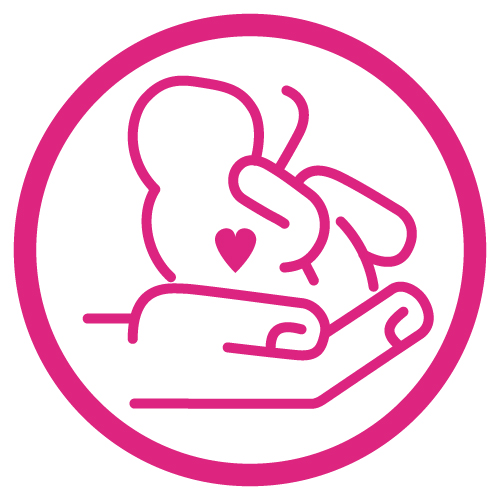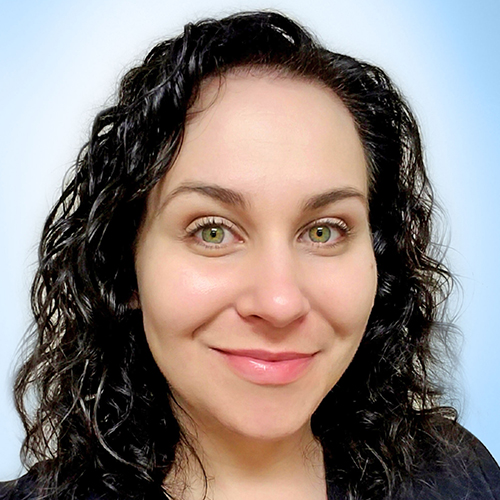 IBCLC Detailed Content Outline: Physiology and Endocrinology Focused CERPs - Section II
IBCLC Detailed Content Outline: Physiology and Endocrinology Focused CERPs - Section II
Access CERPs on Physiology and Endocrinology for the IBCLC Detailed Content Outline recertification requirements. Enjoy convenient on-demand viewing of the latest Physiology and Endocrinology focused IBCLC CERPs at your own pace.

Chasing the Butterfly: Understanding How the Thyroid Gland Impacts Breastfeeding

Alex has been a lactation consultant in the Washington, DC area since 2010. In addition to running her private practice, Bethesda-Chevy Chase Lactation Consultants, Alex cares for breastfeeding moms and babies at Hirsch Pediatrics in Rockville, MD. After earning her master's in English Literature and teaching for several years, Alex met two extraordinary people that inspired her to enter the field of lactation: her daughters. Alex has worked at Inova Fairfax Hospital and Sibley Memorial Hospital as an in-patient lactation consultant. In 2015, she graduated summa cum laude from the University of Maryland Baltimore School of Nursing with a Bachelors of Science in Nursing. Alex is committed to increasing awareness for impaired mammary organ development (IMOD) and impaired mammary organ function (IMOF).
Often overlooked and as elusive as the butterfly it resembles, the thyroid gland may lurk behind a number of breastfeeding difficulties, including low-supply, over-supply, and overt lactation failure. Recent research has revealed that thyroid disorders during pregnancy and postpartum are more common than previously thought. A substantial amount of our current professional discourse centers around tongue-tie, which occurs in anywhere from 4.2%-10.7% of babies, while thyroid disorders in lactating women may in fact be more prevalent than tongue tie, affecting anywhere from 6.7%-13.3% of women in the postpartum period. Even more alarming is that as many 50-80% of these cases may be missed by a woman’s healthcare provider. During this presentation, you will gain a basic understanding of how the thyroid gland functions and the various ways in which a dysfunctional thyroid can adversely affect lactation. You will also learn which signs and symptoms warrant a referral to a primary health care provider. We will review the latest evidence-based thyroid hormone reference values appropriate for a woman during pregnancy and postpartum so that, if your patient does undergo testing, you will feel confident discussing those results with her. Finally, we will discuss some herbal and dietary recommendations for improving thyroid function.

View Details / Enroll

View Details / Enroll
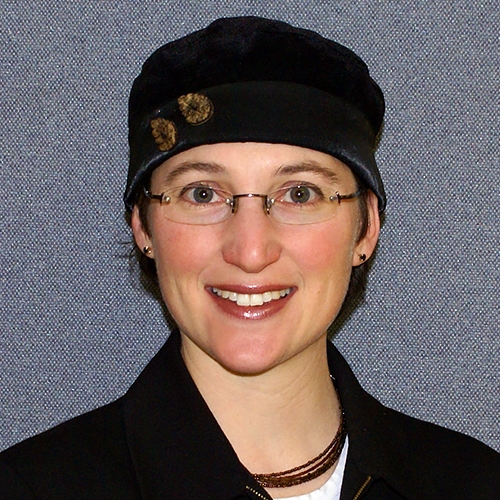
Delayed Lactogenesis II In Women With Gestational Diabetes Mellitus

Dr. Ilana Azulay Chertok is a Professor and Associate Director of Nursing Research and Scholarship at the Ohio University, College of Health Sciences and Professions, School of Nursing. She earned her bachelor’s in international relations and nursing, master’s in nursing, doctorate (PhD) in epidemiology, and post-doctorate in nursing research. The primary focus of her research is national and global maternal-infant health, specifically lactation and breastfeeding research. She has published and presented her work in national and international journals, conferences, and other professional forums. Dr. Chertok has served as a mentor to undergraduate students, graduate students, and health professionals of various disciplines including nursing, medicine, and public health. Currently, she is the lead PI on a study examining the differences in breastfeeding and breast milk between women with and without gestational diabetes mellitus.
Background: Higher intensity and longer duration of breastfeeding is associated with protection against type 2 diabetes development. While exclusive breastfeeding is optimal, women with gestational diabetes mellitus (GDM) have lower exclusive breastfeeding rates than non-diabetic women. While women with GDM have expressed that they feel that their milk “comes in” late, there is limited biochemical validation of their perception and a lack of information regarding the difference in metabolite composition of colostrum which may influence the transition to lactogenesis II. Methods: Researchers conducted a prospective case-control pilot study involving the comparison of metabolite concentrations and maternal perception of milk “coming in” between postpartum women with GDM and without GDM. Results: There were lower concentrations of lactose and citrate, metabolites that indicate transition to lactogenesis II, in colostrum samples of women with GDM compared to non-diabetic women. Furthermore, a higher proportion of women with GDM reported a perceived delay in their milk “coming in.” Conclusions: Lower levels of lactose and citrate in the colostrum samples of women with GDM compared to those without GDM indicate delayed lactogenesis II with GDM which may suggest a biological mechanism associated with lower breastfeeding rates among women with GDM. Additionally, maternal perception of delayed lactogenesis II among women with GDM appears to be validated by biomarkers. The implications for practice relate to lactation support in the early postpartum period among women with GDM.

Demystifying Inducing Lactation: How Lactation Happens Without Pregnancy and Birth

Alyssa has been helping parents and babies with breastfeeding since 2002, first as a La Leche League Leader and since 2009 as an International Board Certified Lactation Consultant.
Alyssa works in private practice serving clients worldwide, primarily through telehealth. She is the author of Breastfeeding Without Birthing: A Breastfeeding Guide for Mothers Through Adoption, Surrogacy, and Other Special Circumstances and a professional supplement to the book, The Breastfeeding Without Birthing Professional Pack online training.
Alyssa has authored articles for The Journal of Human Lactation: The Three Step Framework for Inducing Lactation and Successful Co-Lactation by a Queer Couple: A Case Study. She has also authored articles for La Leche League’s Leader Today and Breastfeeding Today magazines, and Adoptive Families magazine. She is an international speaker on the topics of inducing lactation, relactation, and other related topics. Alyssa is the proud mother of three breastfed children, two by birth and one by adoption. She lives in St. Louis, Missouri, USA.
Topic: Demystifying Inducing Lactation: How Lactation Happens Without Pregnancy and Birth - [View Abstract]
Topic: ReLATCHtation: Transitioning the Exclusively Bottle-fed Baby to Nursing - [View Abstract]
Topic: Supplementation: A Goldilocks Dilemma - [View Abstract]
Topic: The Proficient Pumper - [View Abstract]
Inducing lactation may seem like milk-making magic. How can the breasts make milk without the hormones of pregnancy followed by the hormonal shift that happens with birth? We can use what is already well known about the endocrinology of lactation in general to understand how lactation happens in this very special circumstance. Parents inducing lactation may also present with more diverse hormonal profiles -- think PCOS, post-menopause, trans woman, or intersex – and all these extraordinary parents can be supported with a flexible and customizable plan to make milk. The human body is amazingly adaptable, which is so clear when a person is lactating without gestating!

View Details / Enroll

Feeding Difficulties: A Look at High Risk Populations

Amber Valentine is a Speech-Language Pathologist who graduated from the University of Kentucky with her MS in Communication Disorders. She is a Board Certified Specialist in Swallowing and Swallowing Disorders and an International Board Certified Lactation Consultant. She worked for Baptist Health Systems, Inc for 8 years before moving to Florida where she worked for Wolfsons Children’s Hospital and Mayo Florida. She is now back in Kentucky working for Baptist Health Lexington. She has experience in adults and pediatrics with feeding and swallowing difficulties including: bedside swallow evaluations, Modified Barium Swallow studies, FEES, and pediatric feeding evaluations including NICU. She has provided guest lectures for the University of Kentucky and the University of Louisville on feeding and swallowing topics. She has presented at the hospital level, local, state, national, and international levels on pediatric feeding/swallowing and breastfeeding.
Lillian Scott is a speech-language pathologist and certified lactation counselor employed by Baptist Health Lexington in Lexington, Kentucky. She received master’s degree in Speech-Language Pathology from Gallaudet University. She received dual bachelor degrees in Communication Sciences and Disorders and Special Education from the University of Kentucky. She has worked with pediatrics and adults in the areas of speech, language, and swallowing. She has NICU, Mother/baby, and outpatient clinical experience working with feeding dyads of breast and bottle feeding infants. In the area of adults and pediatrics, she has experience with clinical swallowing evaluations and Modified Barium Swallow Studies. She has experience with adult Fiberoptic Endoscopic Evaluations of swallowing (FEES). Her interest is in successful feeding by mouth for infants with complex medical histories and promoting breastfeeding in cultures that are not likely to receive the supports for feeding difficulties due to knowledge, costs, and/or access.
Feeding is the most complex task of infancy, even in term babies with no complications. There are many diagnoses, conditions, syndromes, and co-morbidities that can impact feeding in neonates and infants. This talk will briefly highlight many of those, but we will focus on three specific populations of interest –Neonatal Abstinence Syndrome, Infants of Diabetic Mothers, and Downs Syndrome. We will discuss the specific implications these conditions can have on feeding, why these infants may have difficulty, and the classic symptoms one could expect to see. The differences between delayed and disordered feeding will also be addressed. Strategies and adaptions for breast feeding will be discussed. Positioning and external strategies will be explained. Case studies will be shared at the end of the presentation.

View Details / Enroll
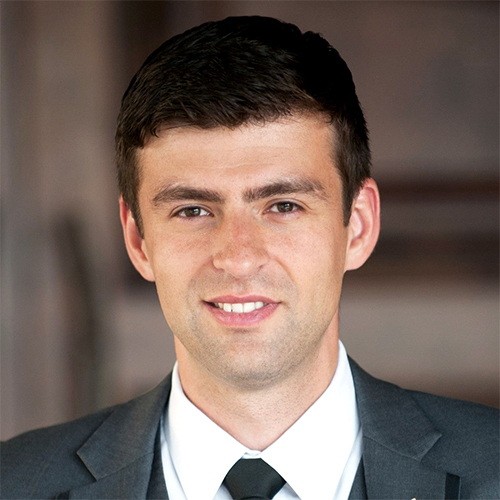
Hold the Meds: A Guide to Toxicities of Common NICU Medications

Pavel graduated from Purdue University with a BS in Medicinal Chemistry and Molecular Pharmacology and Doctor of Pharmacy. He completed his general residency at Parkview Medical Center and Pediatric Residency at University of Chicago. He is a neonatal ICU (NICU) and antimicrobial stewardship program clinical pharmacist at Nationwide Children's Hospital (NCH) in Columbus, OH. Pavel precepts pharmacy residents and students from several colleges of pharmacy while also serving as a preceptor to international pharmacy scholars from Europe, Africa, and Middle East. He is currently involved in a multicenter study to investigate barriers, enablers and opportunities for implementing neonatal antibiotic stewardship in public and private hospitals in South Africa. He is also involved in implementation of neonatal antimicrobial stewardship programs in several hospitals in Lebanon. Pavel is the principal investigator on the study evaluating interventions to reduce antibiotic use among surgical patients in the NICU: The NO-More-AntibioticS and Resistance in Surgery (NO-MAS-R-S) Study.

Human Milk Synthesis: Just When You Thought You Knew

Tom Johnston is unique as a midwife and lactation consultant and the father of eight breastfed children. Recently retired after 27 years in the US Army, he is now an Assistant Professor of Nursing at Methodist University where he teaches, among other things, Maternal-Child Nursing and Nutrition. You may have heard him at a number of conferences at the national level, to include the Association of Woman’s Health and Neonatal Nurses (AWHONN), the International Lactation Consultant’s Association (ILCA), or perhaps at dozens of other conferences across the country. In his written work he routinely addresses fatherhood and the role of the father in the breastfeeding relationship and has authored a chapter on the role of the father in breastfeeding for “Breastfeeding in Combat Boots: A survival guide to breastfeeding in the military”.
Topic: Human Milk Synthesis: Just When You Thought You Knew - [View Abstract]
Topic: New Insights Into the Maternal Child Microbiome - [View Abstract]
Topic: Promoting Provider Self-Efficacy in Breastfeeding Support - [View Abstract]
Topic: Still Swimming Upstream: Breastfeeding in a Formula Feeding World - [View Abstract]
Topic: The Making of Human Milk: A Clinical Update - [View Abstract]
Topic: The Maternal-Child Microbiome or: The “Oro-boobular axis” - [View Abstract]
Topic: The Maternal-Child Microbiome or: The “Oro-boobular axis” - [View Abstract]
Topic: The Perinatal Microbiome - [View Abstract]
Topic: Using Evidence to Develop Clinical Lactation Skills - [View Abstract]
"I didn't make enough milk!" We hear it on a regular basis from heartbroken new mothers. In fact, this is the number one factor contributing to breastfeeding failure after two weeks of age is a perception of inadequate milk production. This phenomenon of sudden onset lactation failure is widely accepted as a common occurrence among breastfeeding mothers. This topic has been the subject of a number of quality studies that have yielded a conflicting mix of responses from primary health care providers and lactation consultants alike. This discussion will attempt to shed light on the very different concepts of "Milk Production" vs. "Milk Synthesis" and will demonstrate how confusion between those two concepts have clouded the study of milk production, promote the fallacy of "insufficient milk production syndrome", and contribute to the failure of breastfeeding. This presentation will also attempt to provide a preliminary course of action to begin anew in milk production research and perhaps even provide a framework for helping the new mothers facing the milk supply challenge.


Tamara Drenttel Brand holds an MA in Near Eastern Studies from the University of Arizona and a Master’s in Public Health (MPH) from the American University of Beirut. She spent 10 years in the Middle East, where she worked as a public health practitioner, infant and maternal health consultant and an IBCLC. She has supported breastfeeding dyads from all over the world both in private practice and as a volunteer. In 2011, she founded and still actively facilitates “Mama 2 Mama Beirut Breastfeeding Support,” the largest breastfeeding peer support network in the Middle East (currently at 25k+ members). Additionally, she founded Galactablog, a professional group for lactation specialists and those aspiring-to-be (currently at 4.7k+ members) and has authored several articles for La Leche League’s monthly leader publications in both the Middle East and Ireland.
She is currently an international speaker on the topics dealing with breastfeeding in the Middle East, innovative lactation teaching strategies, working in resource-scarce settings, providing culturally sensitive lactation support, developing and implementing peer counselor training programs, mast cell disease and other related topics. Due to her own chronic health conditions, she has a special interest in educating others about mast cell disease and supporting those with chronic illnesses. She currently resides in a seaside village in Ireland with her family.
Topic: Contextualizing Breastfeeding in Lebanon - [View Abstract]
Topic: Lactation Education Outside the Box: Innovative Teaching Strategies to Engage Your Audience - [View Abstract]
Topic: Mast Cell Diseases and Lactation Care in the Post-Covid Era - [View Abstract]
Topic: Providing Culturally Sensitive Support for Breastfeeding Muslim Families - [View Abstract]
Topic: Reflections on a Breastfeeding Peer Counselor Program in Lebanon: Lessons Learned and Looking Forward - [View Abstract]
Mast cell diseases remain highly misunderstood and underdiagnosed conditions, even among medical professionals. Patients often take years to be diagnosed due to the range of symptoms and effects that such diseases can manifest. Recently, emerging evidence-based research has found links between mast cell disease(s) and Long COVID, theorizing that COVID-19 can exacerbate existing and undiagnosed mast cell diseases and that the SARS-CoV-2 virus itself could activate mast cell diseases. This raises the possibility that mast cell diseases will become more prevalent, requiring medical professionals, including lactation specialists, to be aware of their impacts and to provide the specialized care and support that such conditions require.
This presentation will provide participants with an overview of the different types of Mast Cell Diseases, symptoms, triggers and treatments. It will discuss associated chronic conditions and will highlight potential complications that such diseases can present for birth and breastfeeding. It will also provide resources to help participants determine lactation risk and compatibility with Mast Cell disease treatments and medications. Finally, this presentation will equip participants with the knowledge and practical tools to improve lactation support and care for clients with Mast Cell Disease.

View Details / Enroll
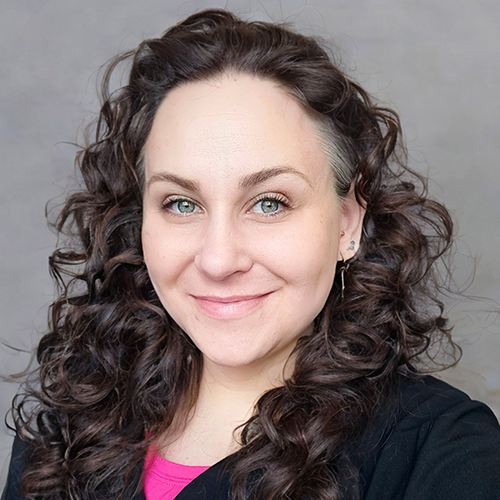

Megan Dunn is a board certified Lactation Consultant and Health Educator who views infant feeding from an anthropological perspective and through a sociological lens. Her experiences have run the gamut as a volunteer, peer-to-peer counselor, clinical IBCLC, and as an educator.
Currently she is the Breastfeeding Program Coordinator for a local WIC agency where she is coordinating a pilot program to equitably expand peer services. She is privileged to be a part of the excellent team at Legacy Health as a perinatal Educator. She also provides community lactation support as a home-visiting provider. Her goals are to support biological feeding norms and to offer practical and empowering solutions for dyads.
Professionally, her special interests include the fascinating world of our microbiome, empowering parents through Participant Centered and motivational approaches, and creating successful feeding solutions for complex cases. She is eager to collaborate on projects which focus on improving public policy and accessibility to culturally aware and trauma informed care for all perinatal families.
When she’s not pondering and working on all things human milk, Megan enjoys cooking, hanging out with her teenagers, going on nature walks, volunteering, and spinning tunes as a community radio host and DJ.
The billions of unicellular organisms which form a symbiotic relationship with our bodies provide essential functions which regulate, modulate, and maintain homeostasis. The microbiome has an essential role in prompting a proper immune response, maintaining adequate digestion and metabolic function, managing inflammatory status, supporting mental health, and many more functions which are required for good health. Dysbiotic conditions during the perinatal period are common and impact the infant feeding relationship.
In this presentation, participants will learn about the functions of the microbiome as it relates to lactation and infant health as well as the consequences of dysbiosis and its impact on lactation/infant feeding.
Additionally, participants will learn how to address dysbiotic conditions within their profession’s scope. This presentation provides clinically applicable information and recommendations that participants can apply when providing lactation education and developing care plans.

More Than Just the Milk-Making Hormone! The Latest on Prolactin and Its Impact on Pregnancy and Lactation

Dave Grattan is a professor in the Department of Anatomy at the University of Otago, School of Biomedical Sciences. He has published over 180 research articles in the field of Neuroendocrinology, particularly focused on the hormone prolactin. He has also presented over 30 invited lectures at international meetings, and won a number of prizes, including the Triennial Medal of the Physiological Society of New Zealand (2005), the Mortyn Jones Medal of the British Society for Neuroendocrinology (2009) and HNNA Lecturer for the International Congress of Neuroendocrinology (2022). He was Head of the Department of Anatomy from 2011-2014, and Director of the Centre for Neuroendocrinology at the University of Otago from 2018-2023. He has served as the President for the New Zealand Society of Endocrinology (2003-2006) and for Hypothalamic Neuroscience and Neuroendocrinology Australasia (HNNA, 2017-2020). From 2009-2014 he was the Editor-in-Chief of the Journal of Neuroendocrinology, and is currently an Associate Editor at Endocrinology. He chaired the organising committee for the 8th International Congress of Neuroendocrinology in Sydney, Australia, 2014, and from 2018-2022 chaired the FASEB Science Research Conference on Growth hormone/prolactin family in health and disease.
Many changes take place during pregnancy to prepare for the physical and physiological challenges of becoming a mother, including numerous adaptations in the maternal brain. Dynamic fluctuations in key hormones during pregnancy induce these adaptive changes to enable the mother’s physiology to adjust to the new demands of these reproductive states and to provide the optimal environment for the development of her baby. Evidence shows that the “lactogenic hormones” (i.e. the multiple pituitary and placental hormones that act through the prolactin receptor) are critical for many of the adaptive changes that occur during pregnancy. It is well accepted that prolactin is required for lactation, but it is now clear that these hormones have a much wider role, influencing maternal behaviour and the maintenance of lactation infertility. Surprisingly, we have shown that prolactin action in the brain also mediates metabolic changes, including stimulation of food intake, a profound suppression in voluntary physical activity in pregnancy, and there is exciting new data showing a role for prolactin in thermoregulation. Collectively, we believe these observations are consistent with the hypothesis that prolactin (and its placental homologue placental lactogen) plays a key role in coordinating the behavioural and physiological adaptations to pregnancy in the mother, and lactation could be considered simply another in this suite of prolactin-mediated physiological adaptations. These data highlight a much more comprehensive role for prolactin in the process of mammalian reproduction than is typically considered for this “lactation hormone”.

View Details / Enroll
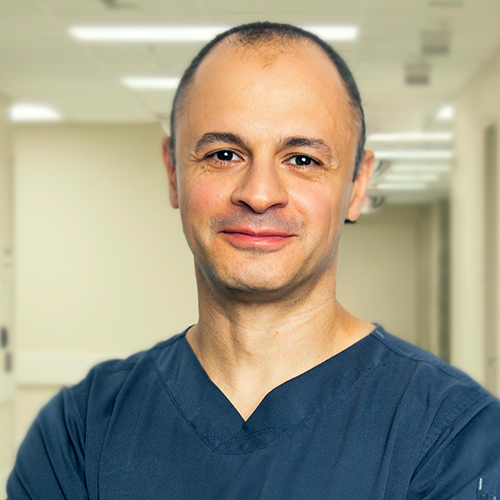
Mother's Own Milk Versus Donor Human Milk in the NICU: Practical Recommendations for Individualized Care

Prof EL-Khuffash is a Consultant Neonatologist and Paediatrician. He is a qualified International Board Certified Lactation Consultant. His two primary clinical and research areas of expertise are heart function in neonates and the promotion of breast feeding, and breast feeding support, to new mothers. He also has extensive expertise in general feeding issues encountered by babies over the first few months.
Prof EL-Khuffash sees families for prenatal breast feeding and fetal anomaly consultations and postnatal infant assessment, 2 and 6 week checks, and breastfeeding/general support including early irritability and reflux in his consultation rooms in the Rotunda Private Clinic.
Prof EL-Khuffash has considerable knowledge of breast feeding medicine and experience in providing antenatal and postnatal breast feeding advice and support to new mothers. This includes identifying and addressing challenges to breastfeeding in both the mother and the baby. He also specialises in general feeding difficulties and early feeding issues encountered by babies.
Prof EL-Khuffash graduated from Trinity College, Dublin in 2002 and enrolled in the Royal College of Physicians of Ireland paediatric specialist training scheme in 2005. He completed a Doctor of Medicine (MD) degree in University College, Dublin in 2008 and his neonatal specialty training in Toronto, Canada (2009-2011). Following this, he was appointed as a consultant Neonatologist and Assistant Professor of Paediatrics at the University of Toronto in January of 2011. He obtained a diploma in clinical epidemiology during his time in Toronto. He is the recipient of several national and international research awards, with international peer reviewed publications and keynote presentations and the lead for cardiovascular research, supervising several post graduate PhD candidates.
Topic: Mother's Own Milk Versus Donor Human Milk in the NICU: Practical Recommendations for Individualized Care - [View Abstract]
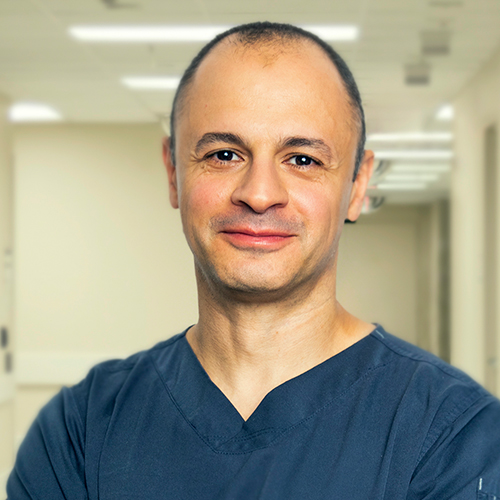
View Details / Enroll




